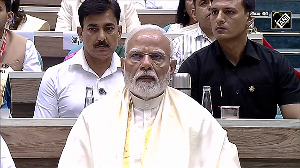According to an official source, a total of 446 companies of central paramilitary forces will be deployed in Assam for the election, which will be held in two phases on April 4 and April 11.
While 96 companies of paramilitary forces are already present in the state, 250 companies have been dispatched in the last few days. Another 100 companies will arrive in the state from West Bengal by March 25.
The Election Commission will deploy paramilitary troopers in at least 65 per cent of the polling stations in the state to facilitate tight security arrangement while micro observers will be deployed in rest of the polling stations where polling process will be video-graphed.
Out of the total 11,254 polling stations where polling will be held in the first phase, 2,093 have been categorised as hyper sensitive and 2,985 have been marked sensitive.
For the second phase, polling will be held in total 12,559 centres out of which 2,033 and 4,175 stations have been
Meanwhile, vigil has been mounted in eastern Assam districts of Tinsukia, Dibrugarh and Sivasagar where the anti-talks faction of the banned ULFA has some pockets of stronghold.
The outfit is out to create trouble in the state before polls by targeting Congressmen to avenge the ruling party's initiative to facilitate dialogue between a majority section of ULFA leaders and the government of India.
Security sources informed that the ULFA anti-talks faction, led by its commander in chief Paresh Barua who is suspected to be holed up at Taka in northern Myanmar close to South China, might make use of cadres belonging to other outfits like the Naga rebels and National Democratic Front of Bodoland (anti-talks) to carry out hit-and-run operations.
The ULFA anti-talks faction is now believed to have a cadre strength of not more that 150 and most of them are based in Myanmar camps.
The police and the Army have also intensified operations against the banned NDFB (anti-talks) whose cadres killed eight Border Security Force troopers on March 14 near the India-Bhutan border.






 © 2025
© 2025